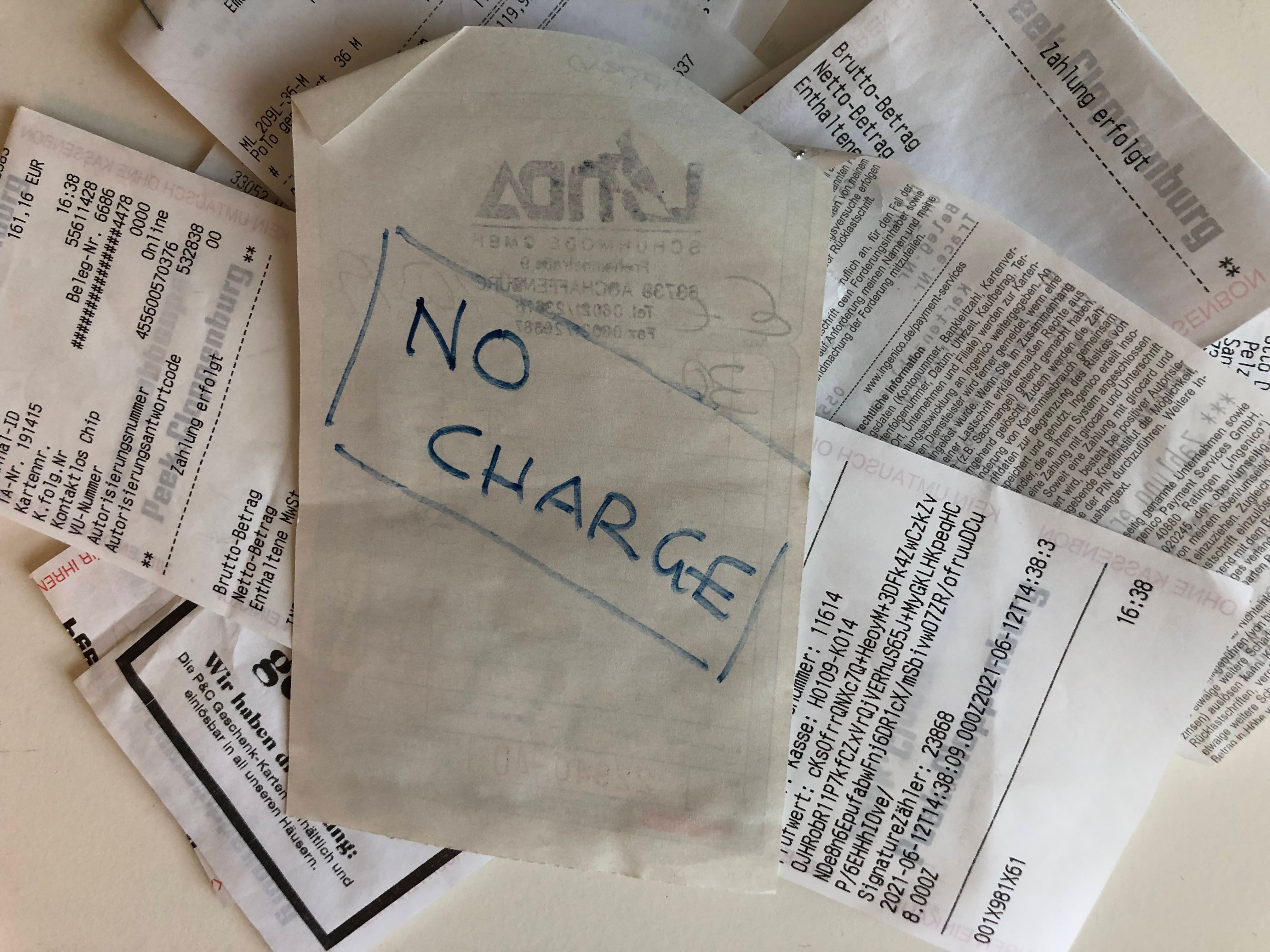

Being unemployed is making me realise how many unpaid hours I was committing to academia.
It’s now 9 weeks since I left the department and I am still (for now) unemployed. Unemployed, that is, in a formal sense, because I am still very much employed in terms of workload.
In these last few weeks, I have evaluated a Master’s thesis, proofread a PhD thesis (not my student, but her supervisor doesn’t believe in providing guidance on writing theses), had meetings with two other PhD students on whose thesis committees I’m still a member, and finalised an official translation for an exhibition that’s taking place at the Würzburg Biocenter.
I’m also doing revisions for one research paper, preparing another paper for submission, and there’s a third paper I would like to get done in order to tie off my research activity in a neat way, as well as other minor administrative bits and bobs that still seem to chew up a lot of hours. I’m busy.
My friends outside academia are amazed at this. I’m unemployed, I could be relaxing, and importantly, nobody is paying me for my input. But I do it, because I feel a duty, and I feel an obligation – these are commitments I’ve made and it’s my responsibility to see them through to completion.
Plus, right now I have time. I also know that those students have made sacrifices and I respect that and I don’t want them to feel abandoned.
I do also enjoy it, no point denying that. But actually, that’s part of the problem.
The problem is the perennial boast of academia: “I can’t believe how lucky I am”, I’d often say, “to actually be paid to do a job that I’d gladly do for free!” But what I hadn’t really appreciated, and what a lot of us don’t appreciate, is that a lot of the time we actually ARE doing it for free, at least from an institutional perspective.
As a postdoc or even a group leader you’re often raising some or even all of your own salary from grants. I was a group leader at the Department of Cell & Developmental Biology in Würzburg and for 7 years (2015-2021) I raised 100% of my own salary. I cost the department nothing. Independently-funded scientists are basically one-person not-for-profit organisations.
On top of that, we’re all doing massive amounts of unpaid overtime, because nobody keeps track of how many hours we actually work (how many of us know how many work hours are actually in our contracts?) and despite there being a shortage of permanent academic positions, there’s also insufficient numbers of people to handle the (ever-growing) workload.
Whether it’s research or teaching or administration, there are innumerable calls on our time and attention, and a lot of those hours end up being committed in the evenings after dinner’s been eaten and the kids are in bed.
Of course, overtime is common in all professions and many jobs feature extreme and arguably excessive amounts of overtime. What seems to differ with academia is the fact that these unpaid hours are not logged (making them invisible, and simply a subtraction of hours from the day instead of being registered as work), and there is a web of obligations that enmeshes people and compels them to do the work on moral grounds and also see it as essential for their own career progression.
We’re encouraged from very early on to think of academia as a calling, something that’s not so much a job as an expression of our self. This inevitably blurs the line between vocational and voluntary work. We are scientists, we are always and always will be scientists, so that means that the science never stops. The professional and the personal blend together into one hybrid state of continuous activity.
This mindset leads to a lot of hours of unpaid hours. For example, it’s common for people to continue working on scientific publications in their free time long (sometimes years) after leaving a group. This might demonstrate how science is part of our identity and just a way we like to spend our days, but the fact remains that this is work, unpaid, often stressful or unpleasant, and quite possibly benefitting others more than ourselves.
I only recently learned that it’s very common for German students to write up their PhD theses for free, and while claiming unemployment money. In some cases, when the writeup takes longer than expected, the students can use up most of their unemployment benefits before they even start job-seeking.
For more old-fashioned lab heads, this activity is rooted in the old system where students were paid 50 % to be lab employees (and therefore doing whatever research or teaching the lab head required), and generously permitted to use the remaining unpaid 50 % of their time to do experiments for their own project. But it’s preposterous nowadays, when the lab head might insist on intellectual ownership of 100 % of a student’s activity, and is the one who stands to gain financially through the publications and grants that ensue.
Even progressive groups can get trapped in covertly endorsing these practises. “The lab can’t afford to pay students while they’re writing up” is a refrain you might hear from the more financially-stressed groups, a situation that’s partly produced by tenured professors not getting consumables budgets for their groups, and having to raise everything through third-party funds. Writing is an activity that can’t be financially supported in such cases, and you must write up on your own dime (and time).
And we all collude. Students want to help their professors and so they agree to terms that aren’t in their best interests. Professors need to keep the lights on and want to give chances to incoming students, so they’ll gently lean on outgoing ones to create space and money. Postdocs and young group leaders raise money to keep themselves off the payroll and bring in money to cover research costs.
That network of obligations and commitments catches up everybody, at every level in the academic hierarchy, and it’s worth asking who ultimately benefits.
The dependency on all these voluntary hours strongly suggests that there isn’t enough money in the system, and that the allocation of existing funds isn’t regulated in the way it should be. A truly depressing corollary is that scientists often end up caring more about money than research, and I’ve heard more than one disillusioned young scientist vent their frustration at how grasping and money-obsessed contemporary academia seems to be.
Nowadays, all wealthy countries claim to want a research base, but to have one they need to pay for it. The public sector simply cannot continue to exploit goodwill and best intentions to extract time and effort from people. Either more money should be injected into the system or the sector should be shrunk, but it’s wrong and unfair to try to get by on not paying for something that’s too large to afford. Academic research is currently kept afloat by a vast expenditure of unpaid labour.
Pro bono is the legal term denoting work done without charge (and pro bono publico, “for the public good”). Academic research is by and large publicly funded, and it is for the public good, but that doesn’t mean it should be gratis.
Originally published (June 2023) on Total Internal Reflection – here.





Join the FEBS Network today
Joining the FEBS Network’s molecular life sciences community enables you to access special content on the site, present your profile, 'follow' contributors, 'comment' on and 'like' content, post your own content, and set up a tailored email digest for updates.